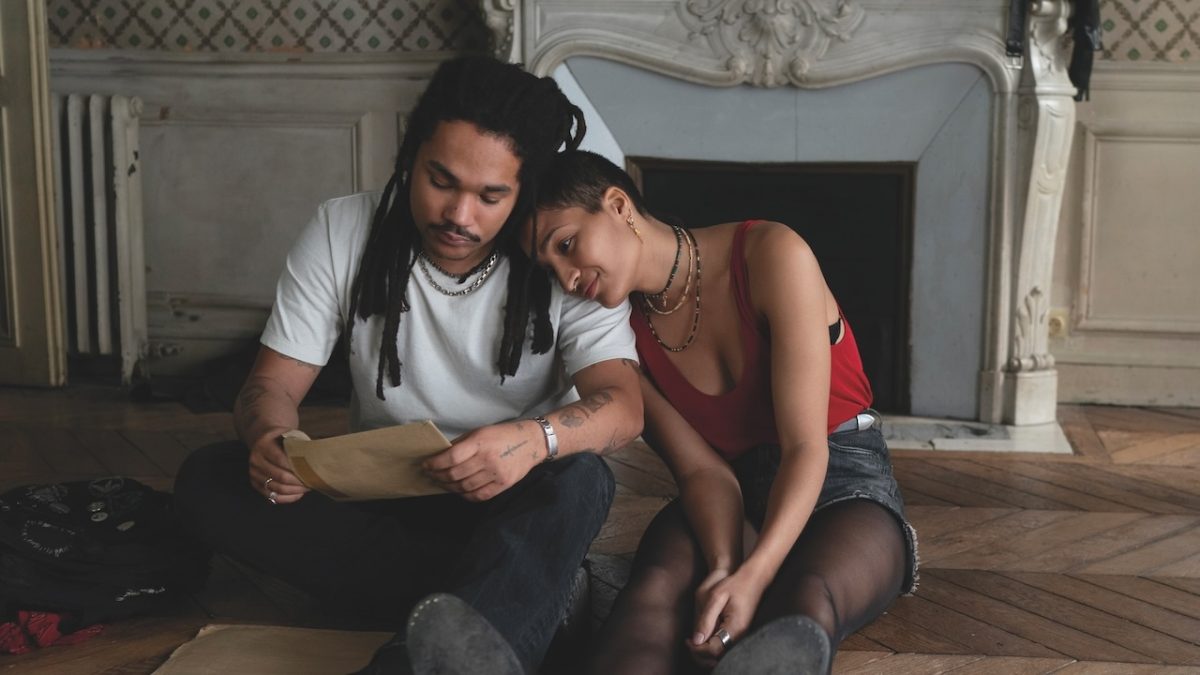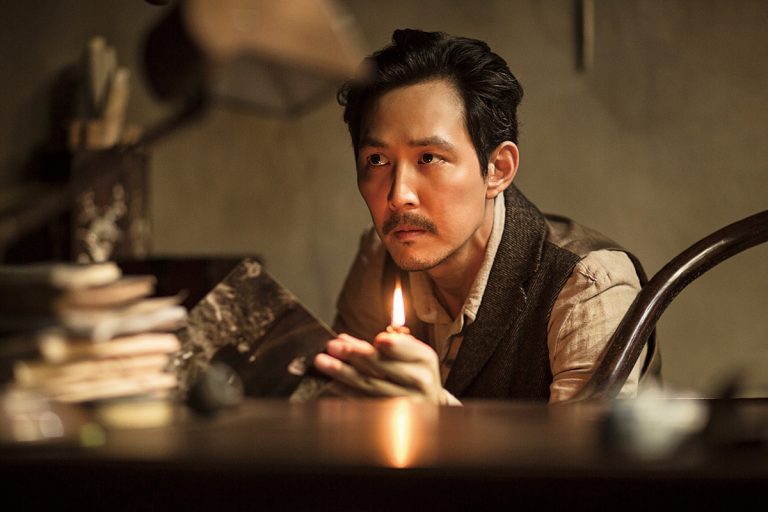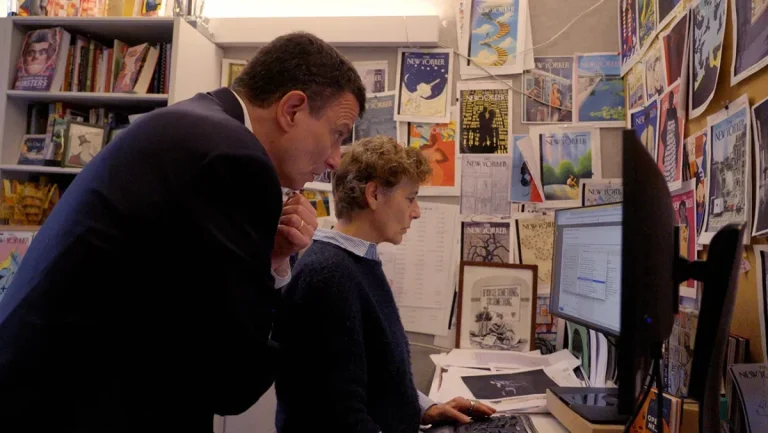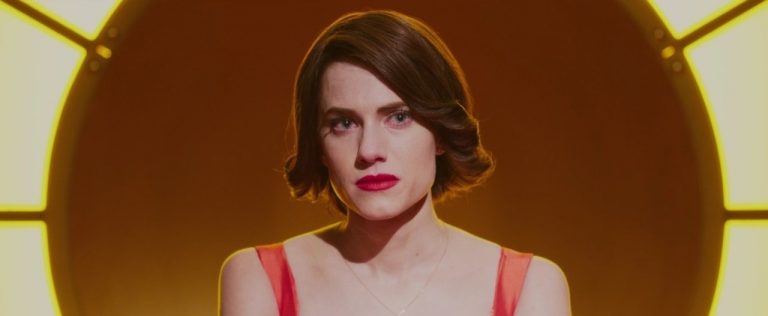“Father Mother Sister Brother” marks Jim Jarmusch’s return to anthology filmmaking. The self-described anti-action movie that recently won the top prize at Venice in a surprising decision harkens back to his themed anthologies of Mystery Train, Night on Earth, and Coffee and Cigarettes. It’s a sweet, slight work, one that feels small but lingers, like many Jarmusch films do, in the awkward silences and spaces of what goes unsaid.
“Father Mother Sister Brother” might be peak Jarmusch, or at least Jarmusch boiled down to his essence. It’s aloof, elusive, overly broad, then overly coy before settling into a groove that ends up feeling just right, if a bit off. Told through three unrelated stories, it carries over some of the trademarks of his past anthologies – repeated lines, recurring motifs, globe-hopping locations, bemused but good-natured confusion, and a winking fondness for the pettiness of human interaction – while ruminating on life, death, family, and connection.
“Father” opens this triptych as siblings played by Adam Driver and Mayim Bialik drive through the US countryside to visit their hermit of a father, played by Tom Waits. Here, we get the broadest segment of the bunch as different parent-child and sibling dynamics play out against an atmosphere of patient distrust.
Father’s rustic home and his aw-shucks demeanor raise sympathy and alarms. An unspoken tension—and the absence of the mother—lingers as they toast with whatever’s at hand and exchange pleasantries. At times, they resemble knowing strangers—uneasy in each other’s company, yet intent on proving they still care about one another’s lives.
Their awkward rhythms carry a wry humor, as all three oscillate between doting, prying, and deflecting without ever fully revealing themselves. The closing beat may lack subtlety, but it distills that breezy, effortlessly cool Jarmusch charm.
“Mother” pivots on the broad notes of its predecessor. Once a year, Charlotte Rampling’s mother invites her two daughters to tea. Here, appearances are the name of the game. Rampling’s home and esprit are elegant and effortless, but much like Jarmusch’s “The Limits of Control,” this is a tightly manicured façade dictated by unspoken rules and traditions.
The tea time set up is so immaculately gorgeous and Instagram-ready that it might as well have been sliced out of a Wes Anderson movie. Her daughters – Timothea played by Cate Blanchett and Lilith played by Vicky Krieps – are exercises in opposites, every aspect of their appearances and mannerisms a reaction to their mother’s influence. If the first segment dabbles in duplicity, then this one is about understatement, an inverse in which the wanted and the wanting are reversed.

“Sister Brother” splits the difference as we meet two American twins (Indya Moore and Luka Sabbat) in a Parisian café as they wrap up family business. They navigate traffic, talk about microdosing, and look through past relics while Jarmusch’s cool and aloof storytelling opens up to its hinted-at themes as the twins consider who their parents really were and what’s to become of their legacy. Jarmusch has always been a filmmaker of aura and vibe, but Father Mother Sister Brother finds his unique, ultra-cool storytelling voice inquiring about time, family, love, and longing.
The first two segments are defined by what the characters can’t bring themselves to say; the final one is defined by what questions can no longer be answered. For a director whose filmography has long oscillated between randomness—the happenstance of his anthology films and the chaotic identities driving Dead Man and Broken Flowers—and rigidity—the codes defining the protagonists of Ghost Dog and The Limits of Control—this feels like a search for middle ground. It emerges as a reflective work where keepsakes and confusions act as the glue binding different generations across time and place.
At the Venice film festival, Father Mother Sister Brother was greeted with mild, hushed curiosity. Rumors said that it was rejected by Cannes, and it had far less hype and scope than the other films in the competition that it beat out. Its surprise Golden Lion win will, for better or worse, define its release. Hopefully, its winner status will bring the film to a wider audience without spurring the backlash that often comes when people expect to be impressed by a film.
This year’s lineup and its awards have already become the subject of much rumor and derision, with Father Mother Sister Brother being dismissed as a safe choice by a boring jury and a career achievement award for a Cannes stalwart who finally debuted at Venice.
These narratives are unfortunate, particularly for a film as unconcerned with discourse, prestige, or optics as this one. Jarmusch has stated that he wrote this film in a matter of weeks, and its breezy, carefree nature is perhaps its biggest asset. It manages to be simple and probing at the same time, more interesting for what it doesn’t say. Funny, obtuse, and poignant, it plays like a highlight reel of the director’s most beloved affectations and an antidote to the trappings of shared universes, Oscar-baity optics, and an industry in crisis.
Jarmusch populates his ensemble with high-profile talent, but understatement is the name of the game. The standout turns come from the parents: Tom Waits and Charlotte Rampling command the screen in distinct registers, their authority and presence casting a luxuriant pull over their offspring. Ultimately, this is a film where theme and mood come first, with each performance a well-realized tile in a larger mosaic that ends up saying something – softly but surprisingly optimistically – about the human condition.
Those expecting a monumental film of bold statements and big moments will likely be disappointed, but those who are either excited to return to Jarmusch’s askew wavelength or willing to get on it will find a slight, thoughtful film that’s uninterested in your expectations or anyone else’s. Like the characters that populate it, Father Mother Sister Brother is more interested in coming together, sitting down, and sniffing out what life’s all about. The answers are in short supply, but the company is pleasant.

![Hit Big [2022] ‘PÖFF’ Review – A Comedic Crime Caper with Shabbiest Characters](https://79468c92.delivery.rocketcdn.me/wp-content/uploads/2022/11/Hit-Big-2022-768x432.jpeg)



![Anhell69 [2022]: ‘Venice’ Review – A Intimate and Melancholic Portrait of the Young Queer Scene in Medellin](https://79468c92.delivery.rocketcdn.me/wp-content/uploads/2022/09/A69_02-768x432.jpg)
![From Where They Stood [2021]: ‘Berlinale’ Review – A moving document of the Holocaust revealed through photographs](https://79468c92.delivery.rocketcdn.me/wp-content/uploads/2021/03/From-Where-they-stood-1-highonfilms-768x460.jpg)